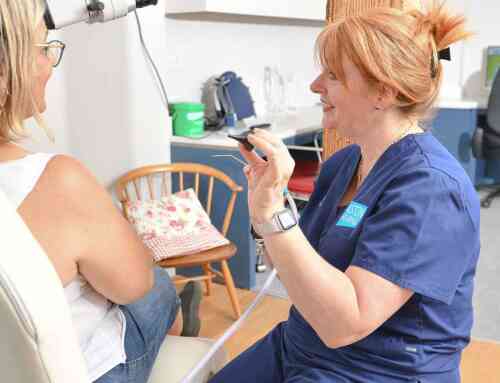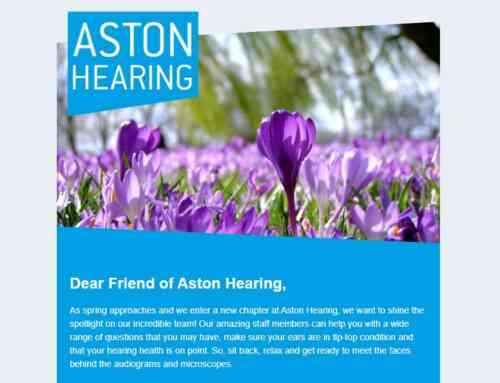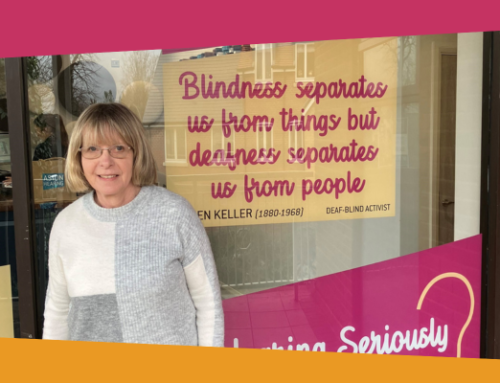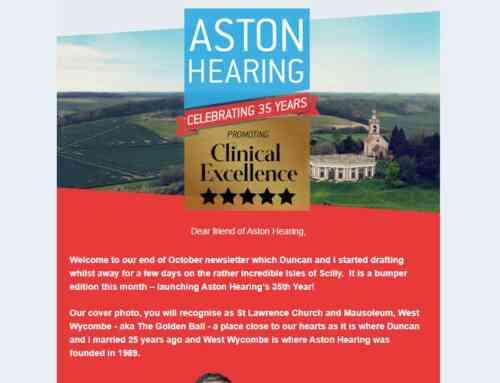- Quite often patients are admitted as an emergency and may not have the time or be able to remember to take their hearing aid charger or spare batteries with them. Even though most hospitals have an ENT department it seems it is almost impossible to access spare batteries if required. This was made worse for some patients as restricted visiting during Covid meant supplies could not be brought in by family or friends.
“I don’t think the problem can really be solved, but I have been back in hospital several times since and now I always make sure that I have a stock of batteries with me, plus a little ‘travel’ case for the hearing aids. At least if they are dropped in that, they don’t get lost! Doesn’t always work, but it helps!”
- Hearing aids should be considered as important as glasses and teeth – an essential accessory for communication and wellbeing. As hearing aid wearers come to enjoy the enhanced hearing that new modern aids offer it can make it even more difficult to function when they are not working or are not available.
- If admitted to hospital, even before you make it onto a ward you might be assessed by several different staff members. From triage nurses on arrival to doctors and nursing staff you are asked to repeat the same information and if you are not hearing properly this can be frustrating and exhausting and can lead to mistakes. With frequent shift changes there can be a constant stream of new staff members, each with different accents and some very softly spoken. Most staff are still wearing face masks for Covid protection which makes them even harder to hear.
- Hearing aids often get lost due to their frequent removal for in-ear temperature testing. Staff do not necessarily realise the importance of placing the aids somewhere safe and ensuring the patient puts them back in their ear after testing.
“I was having my temperature taken several times a day and the hearing aid had to be removed each time and I could only replace it with great difficulty when I was not too drugged.”
From the comments we have received it is clear both we, as patients, and the staff we meet each need a checklist to help improve communication and better care when in hospital.

PATIENTS checklist:
- “Speak up” Whether it is an emergency admission or a scheduled stay in hospital it is important that we, as patients SPEAK UP and tell every medical staff member you meet that you have a hearing loss. Caregivers cannot ‘see’ deafness and may not think to enquire.
- This is not the time to be embarrassed about having a hearing loss as some critical information about your health may be required and will affect the action taken.Quite often there is a ‘decision tree’ where if you give answer “x” the action taken will be “y” etc.
- If possible, it is wise to take along a friend or family member who has good hearing to help with questions etc. Hospitals are noisy places and even with the best hearing aid in the world it will be challenging to hear well.
- If you know you are going into hospital prepare a small “travel” pack for your hearing aids to include spare batteries, charger, and case for when you remove them.
HOSPITAL STAFF / EMERGENCY STAFF Checklist
- Flag hearing loss in a patient’s notes or digital record
- Politely ask if the patient can hear you and ask if they wear a hearing aid.
- In emergency admissions, before leaving home gently enquire if the patient has their hearing aid, spare batteries/charger and a hearing aid case (as well as glasses and mobile phone.)
- When asking for information or administering tests, check the patient can hear you, speak more clearly, and repeat if necessary. Ensure the patient has understood what you have discussed or asked them. Wear a clear face mask if possible so patients can lipread.
- Use transcription technology to caption speech if the patient is familiar with this. (Eg. OTTER). If not use a pen and paper.
- On the ward, post a sign on the patient’s bed to alert ALL staff that the patient is hard of hearing.
- When taking temperature always hand the hearing aid to the patient or place in a safe receptacle by their side. Ensure the aids are replaced after tests have been completed.
- Try to have access to a supply of spare hearing aid batteries for patients in emergencies.





